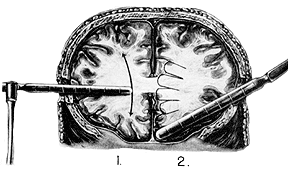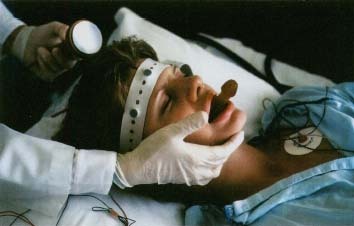
In this section we’ll present personal accounts arguing for and against ECT.
ECT is Not a Fail-Safe, and Not a Cure
Does electroconvulsive therapy cure depression? No. If it did, perhaps that would be the only thing going for it. Unfortunately, long term it is no more effective than medication, but far more devastating and permanent in its consequences. A common misconception is that the severe side-effects, particularly memory loss, are warranted because it is a fail-safe treatment that always relieves depression when meds won’t. This isn’t true. The fact of the matter no one can say if the ECT stopped one from committing suicide on any given day, or if it was just the hospitalization itself that prevented it, since all items that can be used to kill oneself are removed upon entering a psychiatric facility, and the patient is kept under the watch of nurses.
It doesn’t work at all sometimes, and I can speak for myself and at least one friend in that regard.
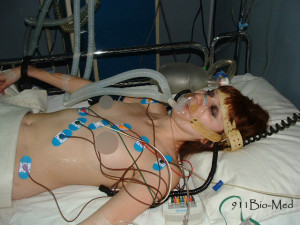
For some people, it seems to work short-term, especially if you judge by the YouTube videos about it. Like I said, it didn’t work for me, and it is curious how those people I do know who had it only one would have it done again. Since I am always around people with depression and bipolar disorder as a member of support groups, I see the results first hand. At least three friends can no longer work as a result of the treatment’s memory loss, and one is now subject to epileptic seizures she attributes to the ECT. She can no longer drive. If you were depressed before, imagine how depressed you’d feel after this treatment when you can’t work or drive anymore.
When you consider that our entire lives consist of a collection of memories, it makes one wonder how even the threat of erasing some of those memories wouldn’t raise alarms. Take away your memories and you have no life to speak of. It’s like a hard drive on a computer. You wouldn’t wipe out sectors randomly on the drive and expect the operating system to work normally, but it is that content on the drive that makes up how much that computer is worth.
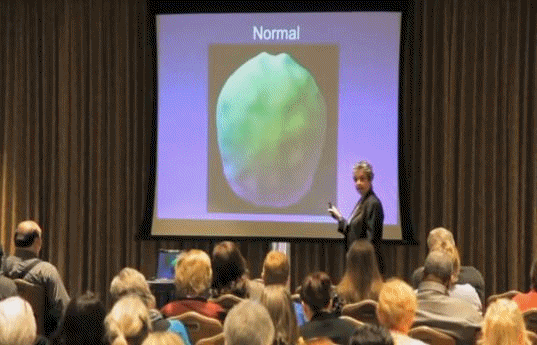
None of us were forced to undergo ECT, but there is a common resentment that the consequences of this treatment were deliberately downplayed. Another thing to remember is that the same mind that was just thinking of suicide is the same mind that will have no qualms about the potential for permanent self-harm done for the sake of relief. This is why I did it, and I am sure that others, in their own desperation, sought immediate relief as well at any price.
There are doctors who say the memory loss is temporary and that it will all come back, but they’ve never had it or fail to appreciate what would happen if they underwent even temporary memory loss: they would be unable to perform their jobs, or even lose them. Imagine if a doctor underwent this treatment: Dopamine? What’s that? What was that new medication with the black box warning I’m supposed to warn patients about? I forgot. What role does the thyroid play in depression? No idea. Where did I park the car? Who are all these people on my smart phone? I’ve worked at that hospital for 10 years and now I wonder how do I get home? What was that fucking off-ramp?
Perhaps that’s why I have never, ever seen a doctor tell me that they’ve had it. In fact, I’ve never had a psychiatrist recommend it. Before I had it, my psychiatrist, a very ethical and prescient man, tried to talk me out of it.
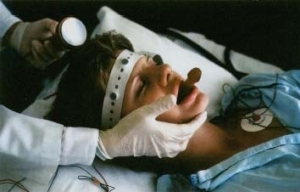
People with memory loss don’t know just how much they’ve lost until they are tasked to recall, and doctors will never ask “do you remember the first time you saw your wife?” or “do you remember the moment of your child’s birth?” or any question that reflects the impact of priceless memories on the human experience, memories that define us. And this is aside from ECTs destructive effects on basic cognition. As we can see in the personal account in the video above, a mother that forgets her own child’s name questions just how much the bond between a child and mother can be affected by what is essentially traumatic memory loss. This is not hyperbole. The only thing I can liken my own memory loss to is the memory loss experienced when unconscious or after a severe head injury, which I’m quite familiar with. In the latter case you do see cell death, but if we’re talking damage to the cells that is much harder to see on an MRI or PET scan.
There is absolutely no way to tell just how badly a brain is damaged unless viewed at the cellular level where you can see the synapses and dendrites, with an autopsy and slides.
Again, a common misconception is that ECT always works as a failsafe, when patients aren’t responsive to meds. There are some in which it has no therapeutic effect. For me, ECT left permanent memory loss and there was absolutely no reduction in depression. Once I was an avid reader and spent my time in libraries just reading encyclopedias. It is almost impossible for me, now, to read a book because I can’t retain what I just read. I use text to speech software to learn anything new or to read long articles on the web, and rely on audio books when I can. Schooling was also next to impossible for the same reason. We really, really need our short term memory and I wish I still had it. Five years of my life prior and post ECT are a blur. I can see videos on the VCR of myself and not recognise the event, or the people around me. It’s like looking at a doppelganger around your relatives and friends.
ECT, moreover, has not been proven more effective than medication in treating depression long term, and cognitive impairment increases exponentially with continued “maintenance” treatment, as noted below. I honestly believe that not too long from now, doctors will look back at ECT the way they look back at lobotomies.

Ironically, ECT “works” by inducing seizures through electric shock, but seizures can also be induced through gases and drugs and have the same therapeutic effect of “rebooting” the brain yet without the memory loss.
There are also new alternatives like Transcranial Magnetic Stimulation, or TMS, which stimulates electrical activity in the brain through magnetic pulses targeting the limbic system. It’s often confused for ECT but it is not anything like it. It’s safer than medication, in fact. It’s not immediate relief, but I wish it was around before the shock treatment.
If there is anything I would like you to take away from this commentary is the fact that ECT is a decision with permanent, often devastating consequences almost always made with a reduced capacity. Suicidal people are the definition of reduced capacity and that is why so many are hospitalized involuntarily. One friend described it as doctors taking advantage of patients when “they are most vulnerable” and in many cases I have to agree, especially doctors who take advantage of the fact it does result in longer, and therefore more profitable hospital stays.
Side Effects of ECT
ECT is a form of treatment for severe forms of depression, bipolar disorder and other mental illnesses. It can cause severe side effects if done incorrectly. Watch to learn more.
Transcript: While ECT therapy is generally considered safe, a number of side effects exist. Cognitive impairment, such as periods of confusion, may increase exponentially with continued treatment. Memory loss may also be an issue for some patients, either in recalling events that happened before the treatment or remembering events occurring afterward. Also, certain medical complications may occur from anesthesia. Headache, nausea, vomiting or muscle aches can all occur.
Related:
- Inquiry launched after ‘wrong kind’ of electroconvulsive therapy given to patient A woman is given ECT treatment that left her without any short-term memory.
If you have a story about your experience with ECT that you would like to share, please write us.

